【算法题目】【DFS】组合,组合总和1,2
目录
1 组合
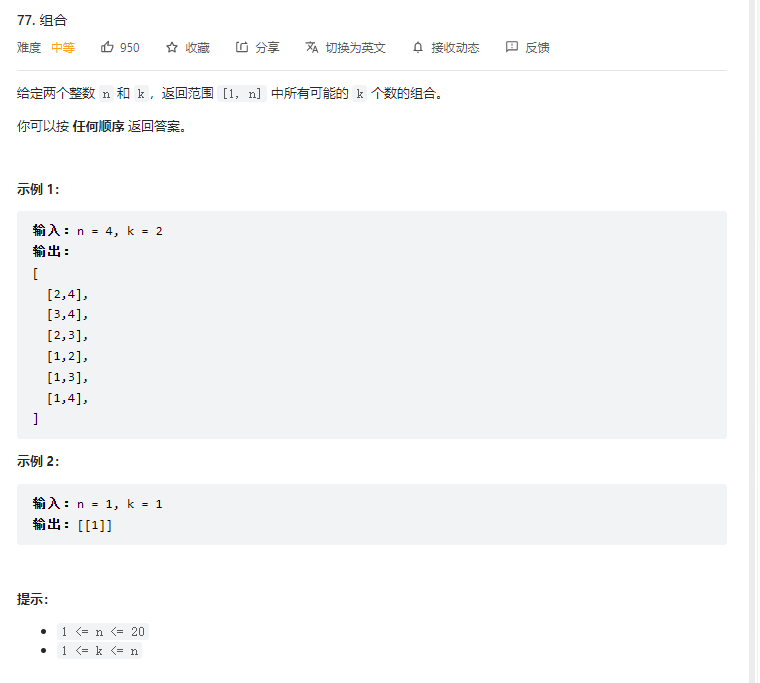
数字都不同,dfs搜索:
python展开代码from typing import List
class Solution:
def combine(self, n: int, k: int) -> List[List[int]]:
def dfs(start):
if len(sol) == k:
res.append(sol[:])
return
if start == len(nums):
return
for i in range(start, len(nums)):
sol.append(nums[i])
dfs(i + 1)
sol.pop()
res = []
sol = []
nums = list(range(1, n + 1))
dfs(0)
return res
2 组合总和
- 组合总和
https://leetcode-cn.com/problems/combination-sum/comments/
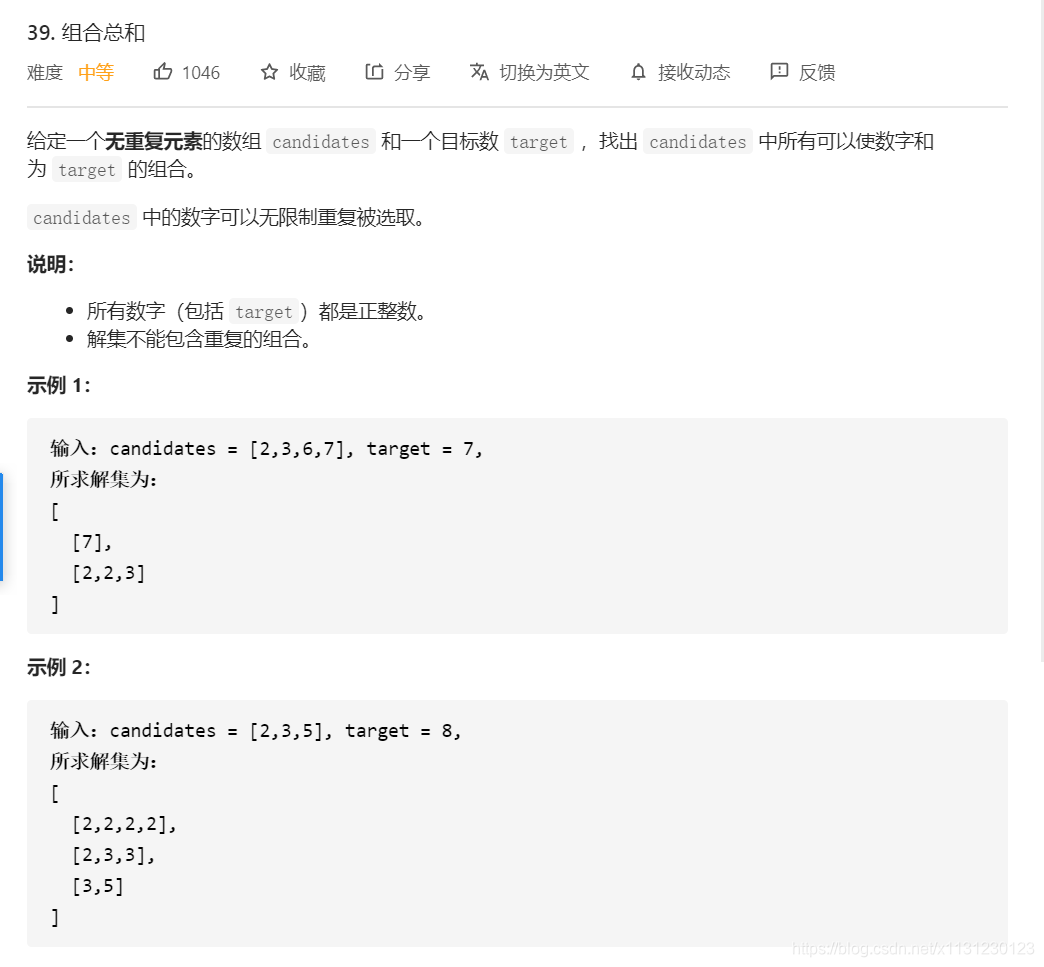
python展开代码class Solution:
def combinationSum(self, candidates: List[int], target: int) -> List[List[int]]:
ans = []
temp = []
def recursion(idx, res):
if idx >= len(candidates) or res >= target:
if res == target:
ans.append(temp[:])
return
temp.append(candidates[idx])
recursion(idx, res + candidates[idx])
temp.pop()
recursion(idx + 1, res)
recursion(0, 0)
return ans
python展开代码class Solution:
def combinationSum(self, candidates: List[int], target: int) -> List[List[int]]:
def dfs(index,sol_sum,sol): # 序号,加和,选取的列表
if sol_sum==target:
res.append(sol[:])
return
if index==n or sol_sum>target:
return
dfs(index, sol_sum+candidates[index], sol+[candidates[index]]) # 选择上当前元素,继续搜
dfs(index+1, sol_sum, sol) # 不选上当前元素,继续搜
candidates.sort()
n = len(candidates)
res = []
dfs(0,0,[])
return res
python展开代码class Solution:
def combinationSum(self, candidates: List[int], target: int) -> List[List[int]]:
def dfs(index,sol_sum,sol): # 序号,加和,选取的列表
if sol_sum==target:
res.append(sol[:])
return
if index==n or sol_sum>target:
return
# 解法1
# dfs(index, sol_sum+candidates[index], sol+[candidates[index]]) # 选择上当前元素,继续搜
# dfs(index+1, sol_sum, sol) # 不选上当前元素,继续搜
# 解法2
for i in range(index,n):
sol_sum+=candidates[i]
sol+=[candidates[i]]
dfs(i, sol_sum, sol) # 基于此继续选择,传i,下一次就不会选到i左边的数
sol_sum-=candidates[i]
sol.pop()
candidates.sort()
n = len(candidates)
res = []
dfs(0,0,[])
return res
3 组合总和2
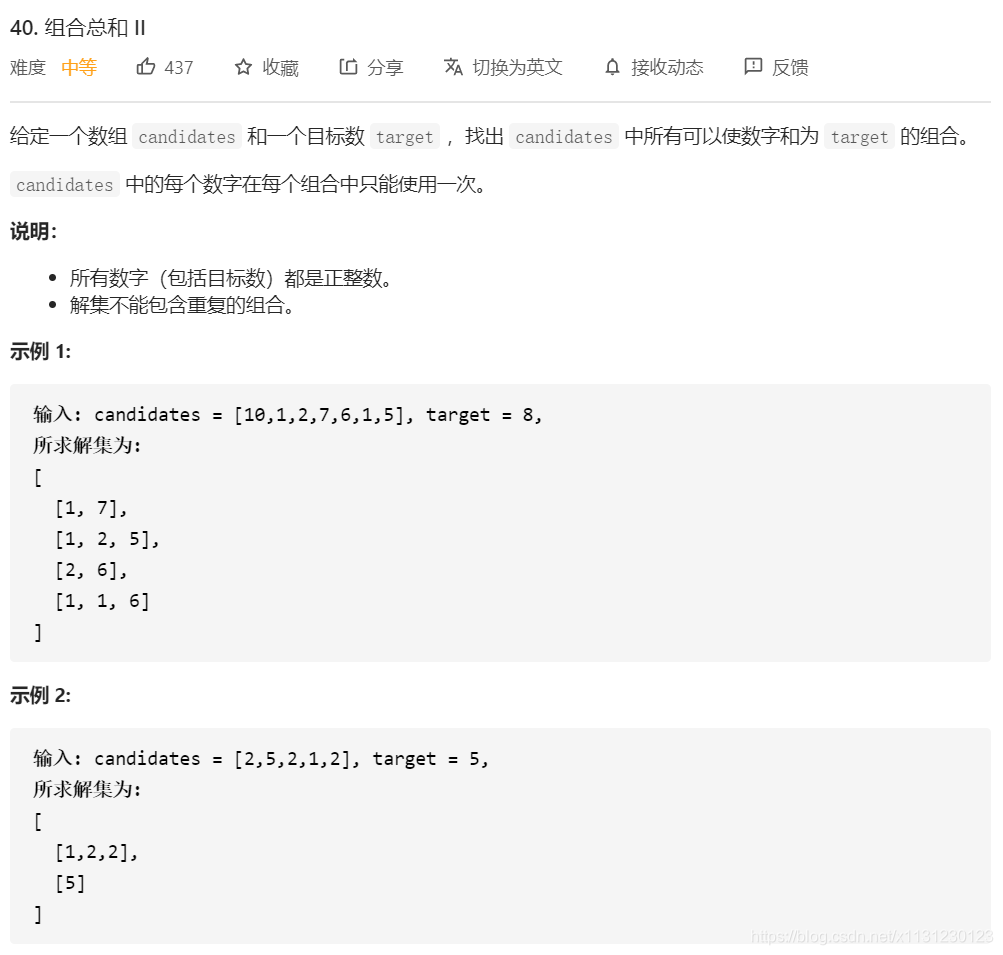
https://leetcode-cn.com/problems/combination-sum/comments/
python展开代码class Solution:
def combinationSum2(self, candidates: List[int], target: int) -> List[List[int]]:
def dfs(pos: int, rest: int):
nonlocal sequence
if rest == 0:
ans.append(sequence[:])
return
if pos == len(freq) or rest < freq[pos][0]:
return
dfs(pos + 1, rest)
most = min(rest // freq[pos][0], freq[pos][1])
for i in range(1, most + 1):
sequence.append(freq[pos][0])
dfs(pos + 1, rest - i * freq[pos][0])
sequence = sequence[:-most]
freq = sorted(collections.Counter(candidates).items())
ans = list()
sequence = list()
dfs(0, target)
return ans
4 子集
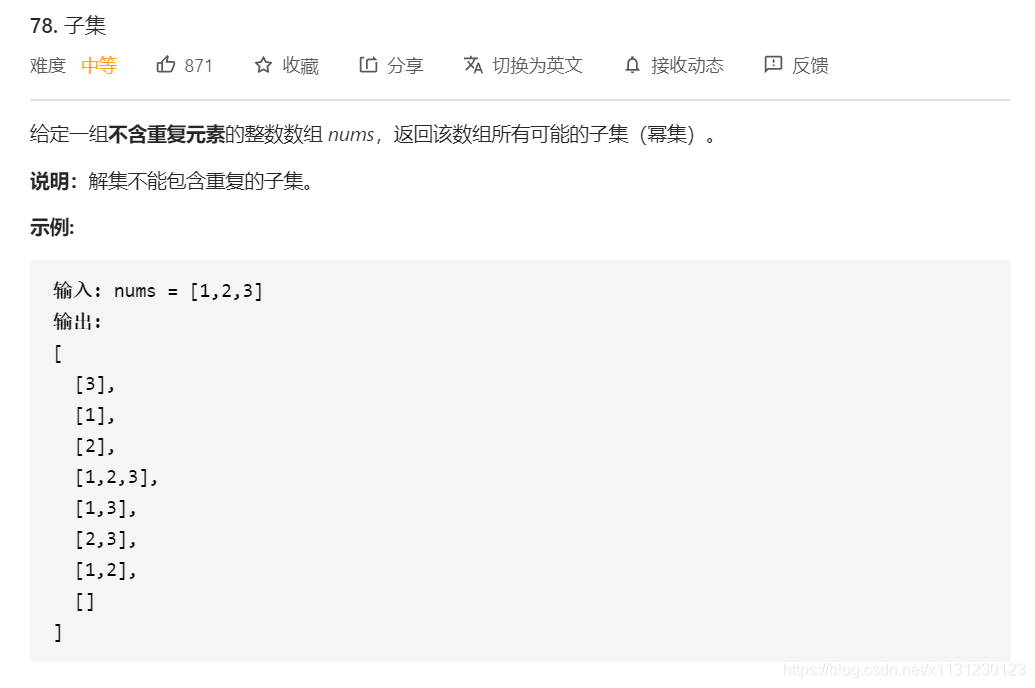
https://leetcode-cn.com/problems/subsets/
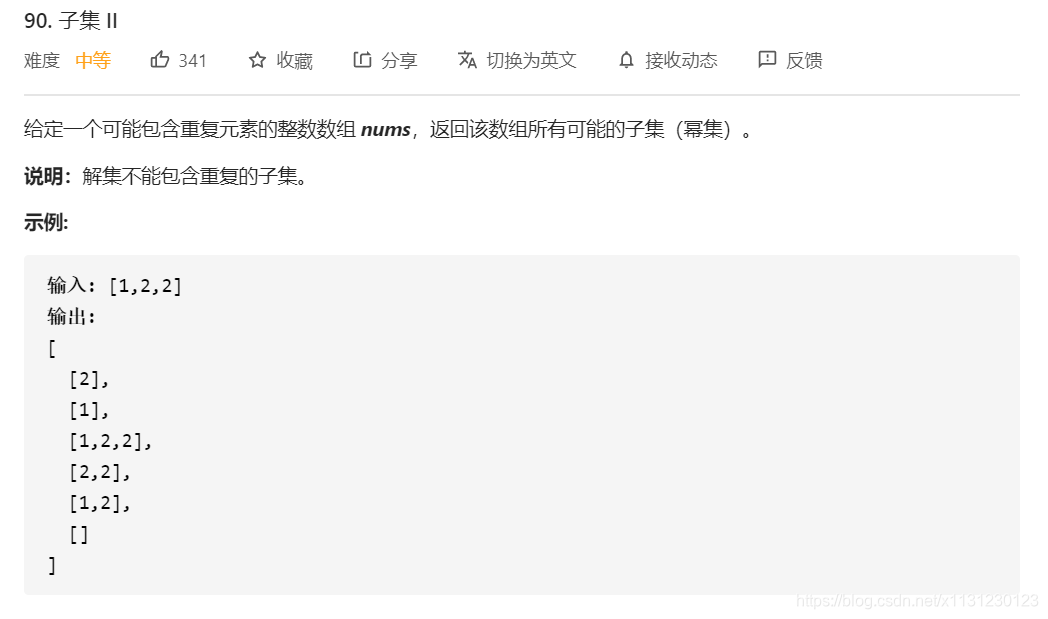
如果对你有用的话,可以打赏哦
打赏


本文作者:Dong
本文链接:
版权声明:本博客所有文章除特别声明外,均采用 CC BY-NC。本作品采用《知识共享署名-非商业性使用 4.0 国际许可协议》进行许可。您可以在非商业用途下自由转载和修改,但必须注明出处并提供原作者链接。 许可协议。转载请注明出处!
目录